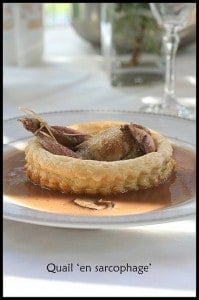Salvation, surprise, redemption, and peace — and all of this from just one meal! Babette’s Feast is a film about an extravagant, multi-course, French dinner. But, really, it’s not about dinner, it’s about a meal. It’s about personal transformation, food, and how the two can be linked. Set in 19th century Denmark, the film is beautifully serene with hearth-like warmth. Words really cannot do this movie justice. You just have to see it.
To commemorate the one hundredth anniversary of their late father’s birth, sisters Philippa and Martine decide to have a special dinner. They invite their religious congregation, which was founded by their father. Though priding themselves on their strong sense of community, the aging congregation has grown petty. Decades old quarrels and jealousies have ossified their hearts and the stability of the congregation is at risk. The sisters hope, if only barely, that the dinner will bring peace and healing to their small community.
Upon hearing about the dinner, the sisters’ housemaid, Babette requests to prepare and pay for it, using funds she recently won in the lottery– 10,000 Francs! Babette offers to prepare a real French dinner. Philippa and Martine reluctantly agree but soon after regret their decision as they consider the decadence of a real French dinner. Such extravagance would go against the spirituality of their congregation, which centers on austerity and a general rejection of worldly things.
The sisters bring their concerns to their congregation. Together, the congregation decides that the best way to avoid the possible sinfulness of such decadence would be to say nothing about it, to show no enjoyment. They plan to eat the meal, but give no recognition at all to its taste. Austerity will win the day.
The plan is all set, but there is one unforeseeable twist. In addition to the congregation, a cosmopolitan general, who is an old friend, attends the meal. He did not get the puritanical memo that mum’s the word concerning the food. This leads to a number of comical interactions between the general – who is completely beside himself with culinary joy – and the rest of the diners. Though the congregation tries to remain neutral to the exquisite tastes, the general’s enjoyment is contagious and after many courses and glasses of wine, the congregation begins to believe that the goodness of the meal is not sinful.
As the dinner continues, the quarrels that had caused discord for years among the community are dismissed. The extravagance, once feared, helps the congregation transcend the limits of their daily lives. They find peace within themselves and with one another.
Babette’s Feast is rich with symbolism, and over it all we find peace coming to reside with the congregation. Dinner is where the transformation from bickering to community happens. The physicality and sensuality of the meal does not prove to be a sinful endeavor; rather, it somehow awakens a part of their hearts that had become lost in extreme austerity. Reconciling the decadent with the austere leads to communal reconciliation and we, as audience members, are delighted to see how this happens.
Babette’s Feast is a great for this time of year. It is one of my favorite movies and I recently learned that it is Pope Francis’ favorite movie. I highly recommend it, but just don’t watch it on an empty stomach.




